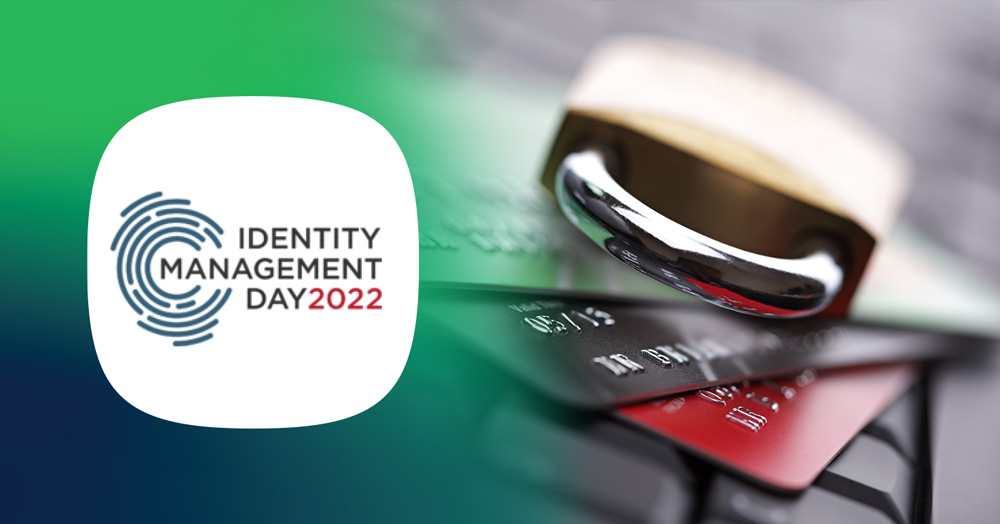In celebration of Identity Management Day, which started just last year in 2021, we're going to be taking a closer look at what identity management is, its benefits, and how you can implement it at work and at home.
We all have various online accounts that keep us connected, and it's essential that we keep these accounts safe.
Jump to section:
Why is identity management important for businesses and consumers?
Identity management is the process of managing your digital identity. If you're more analogue, that might look like keeping a notebook (or even a series of sticky notes) containing your emails and passwords for various websites. A more high-tech version may look like an app that does this tracking for you or even a set of practices that anonymise your digital footprint.
Whatever the case, it's crucial that businesses and individuals have some form of identity management in place in 2022. 61% of all security breaches happen when user credentials are stolen. And 79% of organisations have experienced an identity-related breach in the last two years alone.
For these reasons and more, businesses and individuals should be on guard, taking measures to ensure they don't become another statistic.
The benefits of identity management
Guard against security breaches
![]()
First, proper identity management helps you guard against security breaches. Like any security-related policy, identity management centres on putting strategies into practice to reduce the likelihood of an account breach.
That could be something as simple as using randomised passwords across your accounts or as complex as launching two-factor authentication support across your business.
Identity management can also mean having a centralised system for accessing data, which allows you to more easily guard the endpoints of your identity access. However you go about it, these measures go a long way toward warding off attacks.
Easily access the accounts you need
![]()
Identity management makes it easy to access the accounts you need. We've all undoubtedly forgotten the password or username to an account at one point or another, leading to a headache-inducing and time-consuming recovery process.
With proper identity management you and your staff can avoid these mishaps. From using an app or software solution that keeps track of your credentials for you to implementing a single sign-on solution across your estate, you can save everyone time and frustration and reduce the chance you’ll need to call in your IT team for account recovery.
Reduced costs
![]()
And taking advantage of effective identity management practices can help businesses and individuals alike cut costs. This is mainly done by freeing up your IT teams. When they aren't spending time on account recoveries, they can dedicate that time to more high-value work, creating additional value for your business.
Identity management also cuts costs by preventing security breaches, which can be extremely costly for both businesses and individuals. By keeping your accounts safe with identity management, you can prevent these costs from ever being incurred.
How to protect your identity online
Centralise your identity management
![]()
First, you should consider creating a single environment where all identity management is managed.
By centralising identity management your IT team can easily create, modify and remove user access in one place, without having to remember to do the same to each individual login.
Find a software solution that works for your business
![]()
Something that can go a long way towards helping you centralise your approach is a good software solution. There are plenty of apps for individuals and businesses alike that make keeping up with your identity management a breeze.
For individuals, devices from Apple and Google come with identity management tools built-in. These tools suggest randomised passwords and even anonymous emails, which you can use to keep your information private and difficult to crack.
There are plenty of enterprise solutions for businesses that will keep your accounts safe on a broader, more secure scale.
Implement a defence in depth security model
![]()
Don’t just rely on your users to keep their identity secure, ensure that you implement a defence in depth security model. By introducing changes, such as enforcing multi-factor authentication across your entire IT estate, implementing the principle of least privilege or even segmenting your estate into trusted zones, you can safeguard your business data from day one.
Score your identity management strategy today
To see how well your business is embracing proper identity management practices, contact ou JT’s expert Cybersecurity and Risk Advisory Unit.

